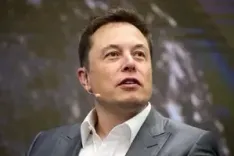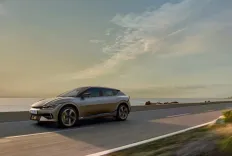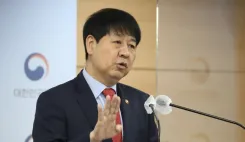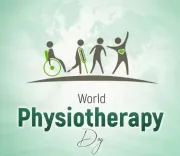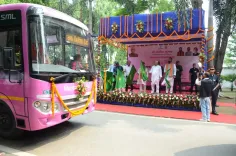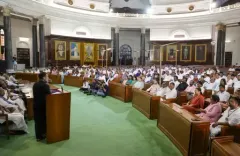Auto PLI Secures ₹20,715 Crore Investment, Increases Sales by ₹10,472 Crore: Government
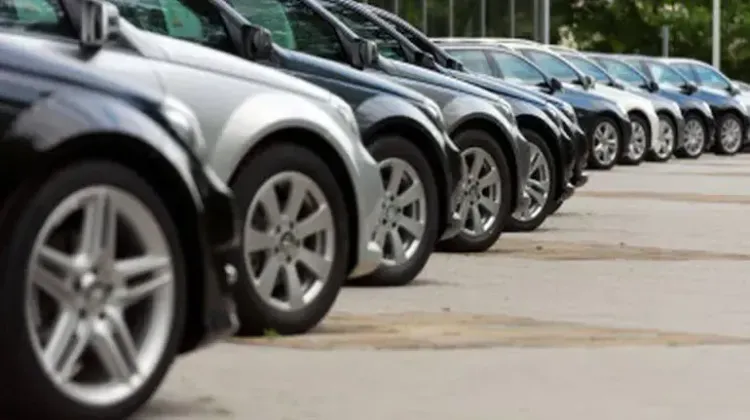
New Delhi, Dec 19 (NationPress) The production-linked incentive (PLI) scheme designed for the automobile and auto components sector has successfully garnered an investment of ₹20,715 crore and achieved incremental sales amounting to ₹10,472 crore (as of September). The government announced that the first disbursement of incentives is planned for FY2024-25.
As per the Ministry of Heavy Industries, out of a total of 115 applications submitted, 82 were approved. This is projected to lead to an estimated investment of ₹42,500 crore, incremental sales of ₹2,31,500 crore, and the creation of 1.4 lakh jobs over the next five years.
The PLI initiative for the automobile and auto components sector, which has a budgetary outlay of ₹25,938 crore, is aimed at boosting India’s manufacturing capabilities in advanced automotive technology (AAT) products, addressing cost challenges, and establishing a resilient supply chain.
The scheme will be in effect from FY 2023-24 to FY 2027-28, with incentive disbursements scheduled from FY 2024-25 to FY 2028-29. Incentives range from 13-18 percent for components related to electric vehicles and hydrogen fuel cells, while 8-13 percent is offered for other AAT components.
Additionally, the FAME-II Scheme, introduced in 2019 with a financial outlay of ₹11,500 crore, aims to encourage electric mobility in India through demand incentives for e-2Ws, e-3Ws, e-4Ws, e-buses, and EV public charging stations.
As of October 31, 2024, a total of ₹8,844 crore has been utilized, which includes ₹6,577 crore for subsidies, ₹2,244 crore for capital assets, and ₹23 crore for other expenses.
“A total of 16.15 lakh EVs have been incentivized: 14.27 lakh e-2Ws, 1.59 lakh e-3Ws, 22,548 e-4Ws, and 5,131 e-buses. Furthermore, 10,985 EV PCS have been approved, with 8,812 allocated for installation,” according to data from the ministry.
The PM E-DRIVE Scheme, announced on September 29, 2024, with a total budget of ₹10,900 crore, is set to run from October 1, 2024, to March 31, 2026, promoting green mobility and developing the EV manufacturing ecosystem.
The allocations under this scheme include ₹3,679 crore for subsidies to incentivize 28 lakh e-2Ws, e-3Ws, e-ambulances, and e-trucks; ₹4,391 crore for the acquisition of 14,028 e-buses by public transport agencies; ₹2,000 crore for the installation of 22,100 fast chargers for e-4Ws, 1,800 fast chargers for e-buses, and 48,400 fast chargers for e-2Ws/3Ws; ₹780 crore for upgrading testing agencies; ₹500 crore each for deploying e-ambulances and e-trucks; and ₹50 crore for administrative costs.
As of November 20, claims worth ₹600 crore have been submitted under the scheme, with ₹332 crore already disbursed.
The Scheme to Promote Manufacturing of Electric Passenger Cars (SMEC) in India seeks to position the country as a manufacturing hub for electric vehicles (e-4Ws) and enhance domestic value addition (DVA).
This scheme permits limited imports of e-4Ws at reduced customs duties, capped at 8,000 vehicles annually, with the total duty forgone per applicant limited to ₹6,484 crore or the committed investment.
The PM e-Bus Sewa – Payment Security Mechanism (PSM) Scheme, announced on October 28, has a total financial provision of ₹3,435.33 crore and aims to guarantee payment security for OEMs/operators in case of defaults by Public Transport Authorities (PTAs) concerning e-bus procurement and operations under gross cost contracts (GCC) or similar agreements.
The government has also sanctioned a PLI scheme for establishing manufacturing facilities for Advanced Chemistry Cell (ACC) battery storage in India, with a budget of ₹18,100 crore over a span of seven years.
This initiative aims to strengthen India's manufacturing capabilities and is designed to incentivize both domestic and international entities to establish a competitive ACC battery setup within the nation.

